Looking for a natural deodorant that doesn’t have harmful ingredients? Here are some great options.
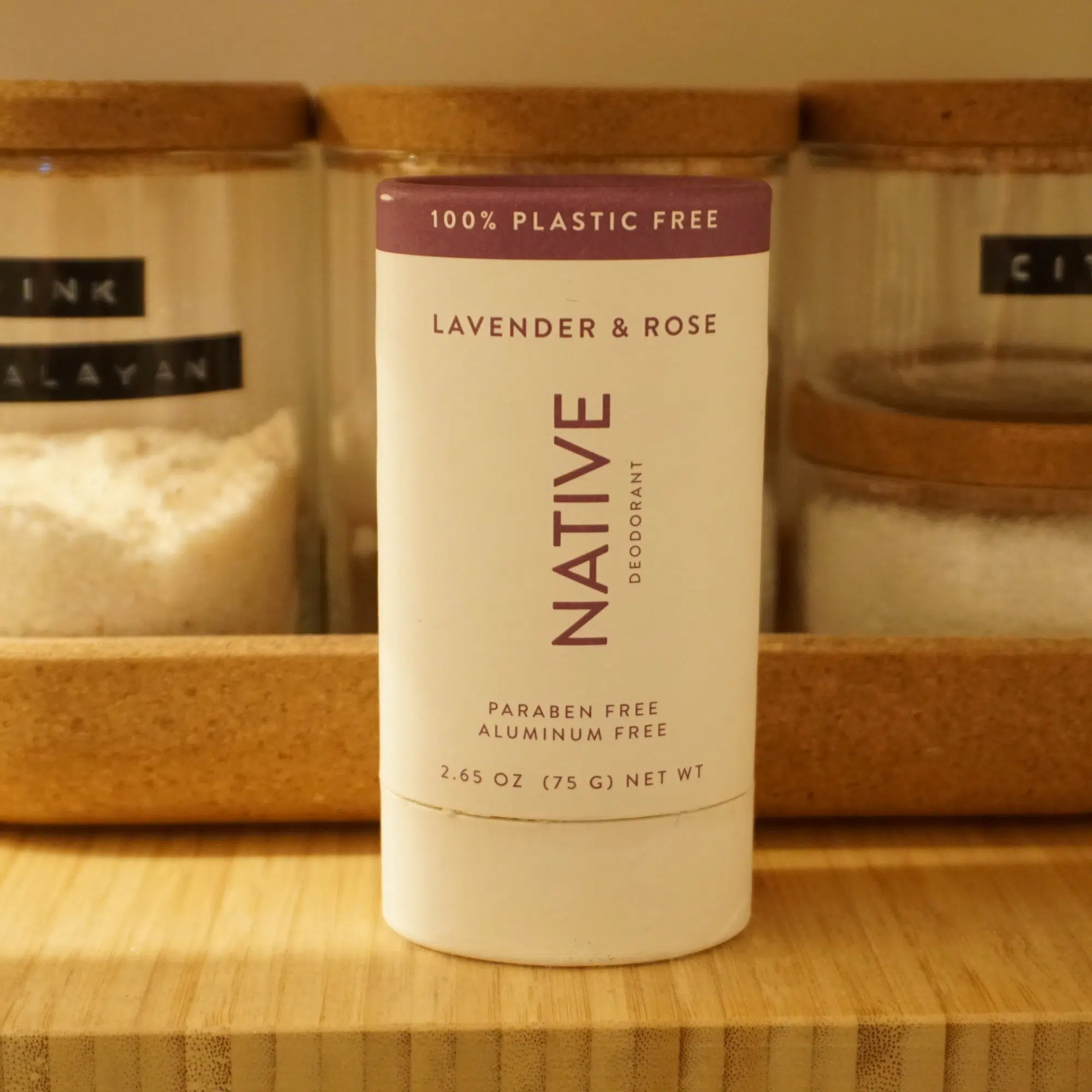
Choosing a good deodorant can be annoyingly difficult because there’s so much information (and misinformation) out there.
Some people say that many of the ingredients traditionally used in deodorant manufacturing can lead to health issues like cancer or Alzheimer’s. Others dismiss those claims as pseudoscience and argue that those ingredients aren’t harmful at all.
This controversy often leaves you with more questions than answers. Should you avoid aluminum? Are parabens really that bad? And what even is a “natural” deodorant?
There’s a lot to unpack here, so I’ll break down these problems one by one.
What’s The Deal With Aluminum In Deodorant?
First of all, the question itself is a bit misleading. Aluminum generally isn’t found in deodorants, but it is found in antiperspirants.
Deodorants simply eliminate armpit odor, but antiperspirants are specifically formulated to control sweating by blocking the pores. (Usually, these are separate products, though some 2-in-1 products exist.)
Antiperspirants have to use aluminum in order to effectively prevent sweating. In fact, it’s legally required. In order for a product to be classified as an antiperspirant by the FDA, it must have some form of aluminum salt as the main active ingredient.
This means that, per the FDA’s definition, no aluminum-free antiperspirants exist. Aluminum-free deodorants do exist, but this is also somewhat misleading because most deodorants produced today are naturally aluminum-free (even if they don’t explicitly advertise themselves as being aluminum-free.)
Some of the confusion comes from antiperspirants being labeled as “antiperspirant deodorants” and being sold in the same packages as deodorants, so it’s crucial to read the label to know exactly what you’re getting.
The issue with aluminum itself comes from its apparent connections to two diseases: Alzheimer’s and breast cancer.
According to Healthline, none of these studies have determined that aluminum causes either disease.
Since the body absorbs such minuscule amounts of aluminum by way of products like antiperspirants, there’s no conclusive evidence to suggest that the use of deodorants or antiperspirants is linked to any disease formation.
Does all of this mean you don’t need to worry about aluminum? Probably, but mostly because almost no deodorants contain aluminum anyway. That said, there aren’t any benefits to using deodorants with aluminum, so don’t bother seeking them out.
If you need to use an antiperspirant to control excessive sweating specifically, there’s no current evidence to suggest you should be concerned.
What About Baking Soda in Deodorant?
Baking soda is another problematic ingredient and one that is often found in deodorant formulas.
The main problem is that baking soda can cause irritation. Since its pH level is higher than that of human skin, baking soda can dry out the skin, causing redness and itchiness. If you have dry skin, you’re more likely to experience these side effects.
There’s nothing to suggest that baking soda is harmful in any way, but it can lead to discomfort. It’s simply a case of figuring out whether it works for you or not.
What About Parabens in Deodorant?
Parabens are preservatives that help stabilize other ingredients. They’re most often found in cosmetics and body products. While they’re not commonly found in deodorant formulas, they do show up sometimes.
Currently, the FDA has no proof of parabens in cosmetics negatively affecting health. As is the case with aluminum, there’s no conclusive evidence to prove that parabens cause or are linked to diseases.
What Is A Natural Deodorant (And Why Should You Use One)?
For the purposes of this article, I’ll define a “natural” deodorant as a product that doesn’t contain any potentially harmful or controversial synthetic compounds.
At this point, you might be wondering: If “non-natural” ingredients like aluminum and parabens aren’t harmful, why should you bother using a natural deodorant?
The simple answer is that natural deodorants are formulated to be effective yet gentle. While synthetic ingredients may not cause diseases, many of them still aren’t ideal to be putting on your body.
You also might choose natural deodorant if you’re wary of the potential risks of ingredients like aluminum. Since there’s no conclusive research either way, some people would rather play it safe, which is completely understandable.
Quick Take
Here are our top three recommendations from the list:
Botanik Natural Organic Deodorant is a simple deodorant which packs a punch. Its fresh evergreen scent features rich notes of Douglas fir and Scotch pine.
Native is the most popular natural deodorant brand on the market right now. The Citrus & Herbal Musk has a refreshing scent that puts a unique twist on a traditional masculine aroma.
Malin + Goetz’s Eucalyptus Deodorant uses gentle ingredients like eucalyptus extract and citronellyl. It’s a simple natural deodorant that does the job well.
Read on for more info and the complete list…
The 9 Best Natural Deodorants for Men
Now that you know exactly what a natural deodorant is and why you might want to use one, here are our top picks for the best natural deodorants for men on the market.
Native
Native is the most popular natural deodorant brand on the market right now, and it really does deserve all the praise it gets.
Native’s natural deodorants are made without aluminum, parabens, phthalates, and talc.
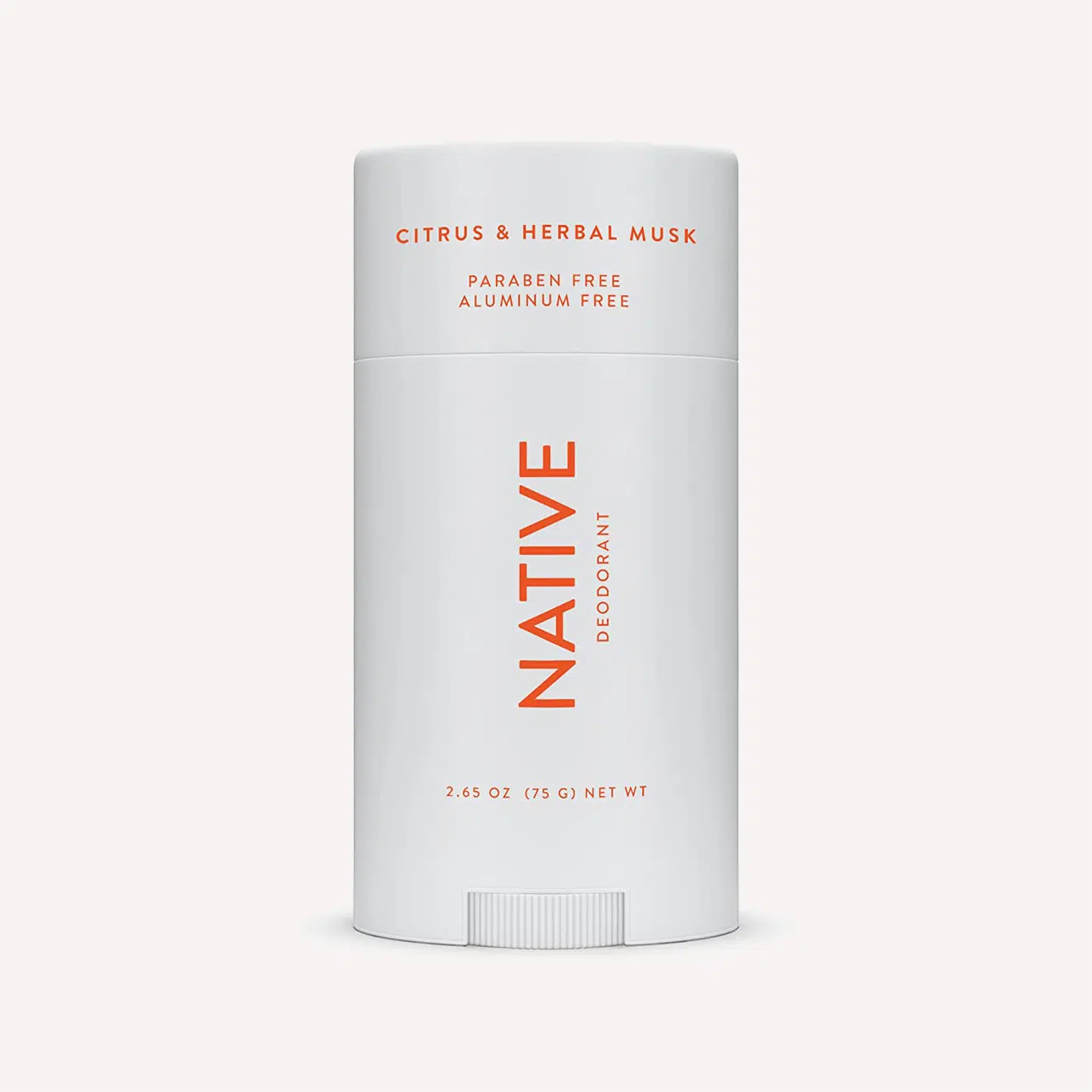
The formula is full of familiar ingredients like coconut oil, shea butter, and tapioca starch. Native’s regular deodorants do contain baking soda, but the brand offers a sensitive line that’s formulated without it.
There are several classic scents to choose from as well as rotating limited edition scents that tend to be more adventurous. The Citrus & Herbal Musk featured here is a refreshing scent that puts a unique twist on a traditional masculine aroma.
Schmidt’s
Schmidt’s was founded way back in 2010, making the company one of the first to focus specifically on natural deodorants. It’s received multiple awards over the years and is certified natural by Ecocert.
Schmidt’s formula is free from aluminum and parabens, though it does use baking soda.
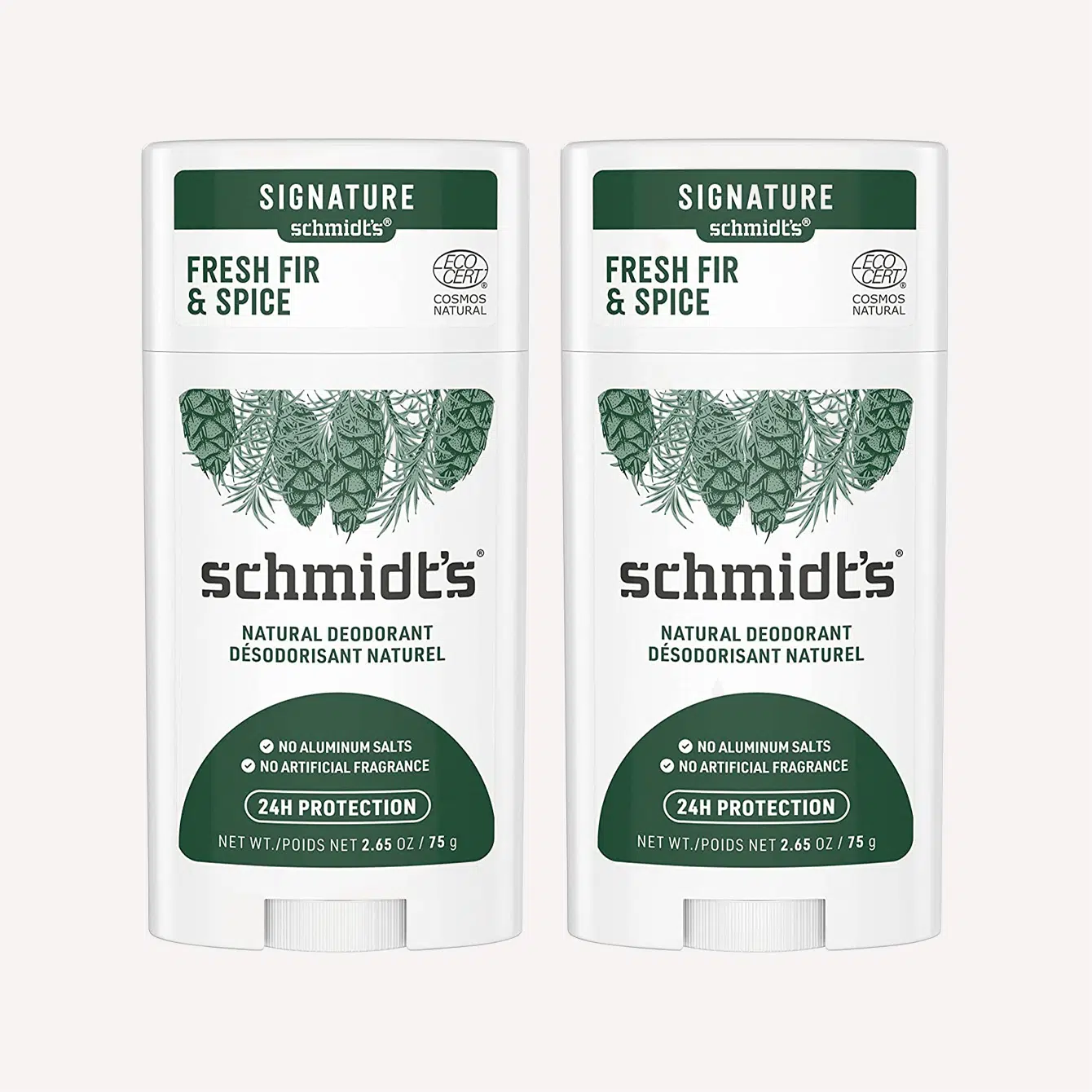
Like Native, however, Schmidt’s also offers a line of sensitive deodorants that omits baking soda. The active ingredients include organic compounds like arrowroot powder, candelilla wax, and jojoba esters.
These deodorants tend to be on the waxier side, which you may or may not prefer. If you’re used to a drier stick, you’ll probably have to adjust your application technique.
If you’re after traditionally masculine scents, consider Fresh Fir & Spice and Sandalwood & Citrus. If you need a sensitive formula, then you might like the Hemp & Sage.
Tom’s of Maine
Along with Schmidt’s, Tom’s of Maine is a well-known brand you might recognize from the drugstore or supermarket. Tom’s products are great for guys interested in switching to a natural deodorant but don’t want to pay a premium.
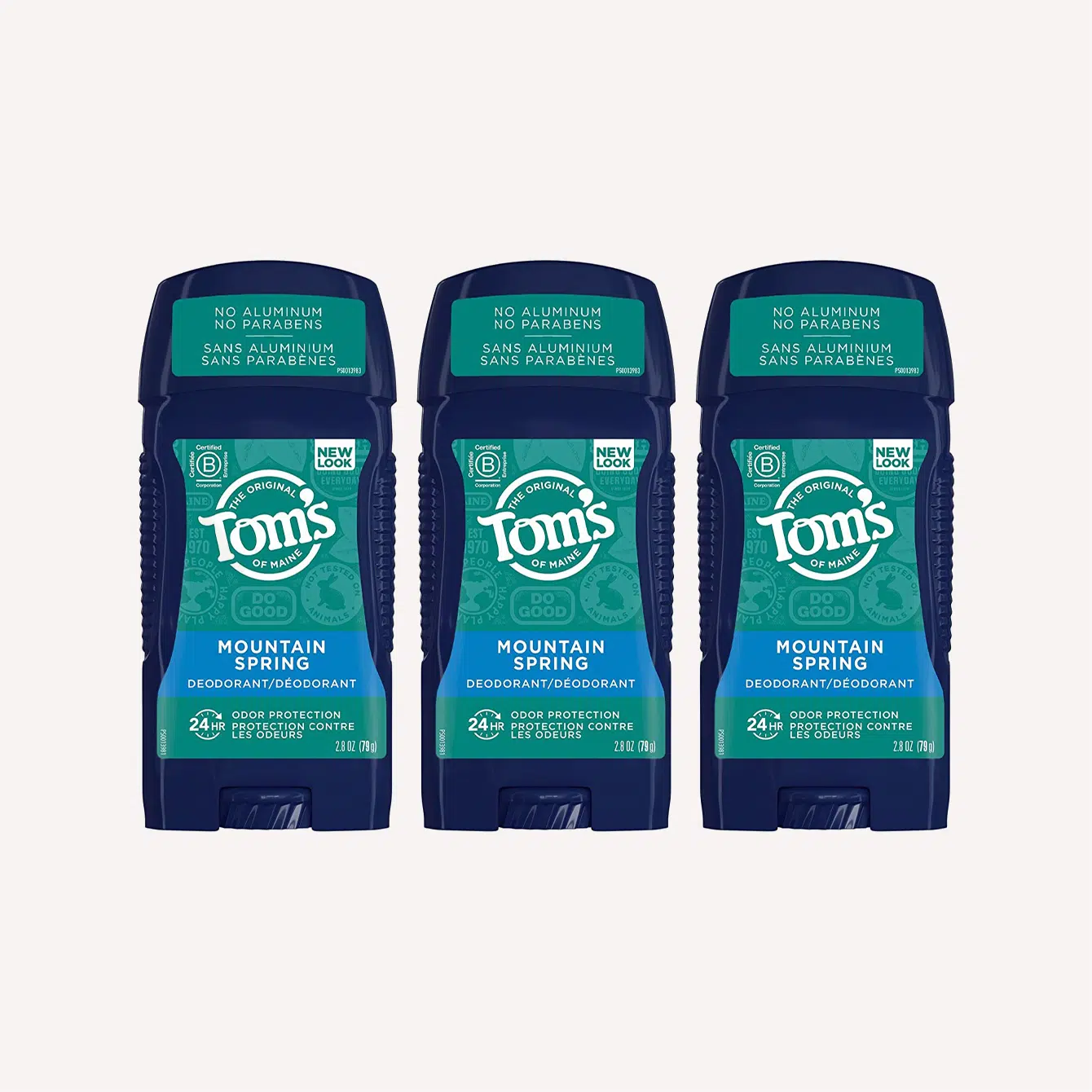
The classic deodorant line is made without aluminum, parabens, or baking soda. The Natural Strength line uses honey, so it’s not vegan (but it’s still cruelty-free).
Tom’s also makes antiperspirants that are often sold in identical-looking packaging, so ensure you’re not buying the wrong product.
As far as scents are considered, Tom’s has nothing bold or revolutionary, but there’s something for everyone. Mountain Spring is the classic fresh scent, while the Natural Strength Rugged Coast is reminiscent of seaside woods.
Baxter of California
Baxter has a refreshing, minimal approach in terms of both formula and aesthetic. The company’s deodorant is simply called “Deodorant,” and there’s a minimal amount of branding on the packaging.
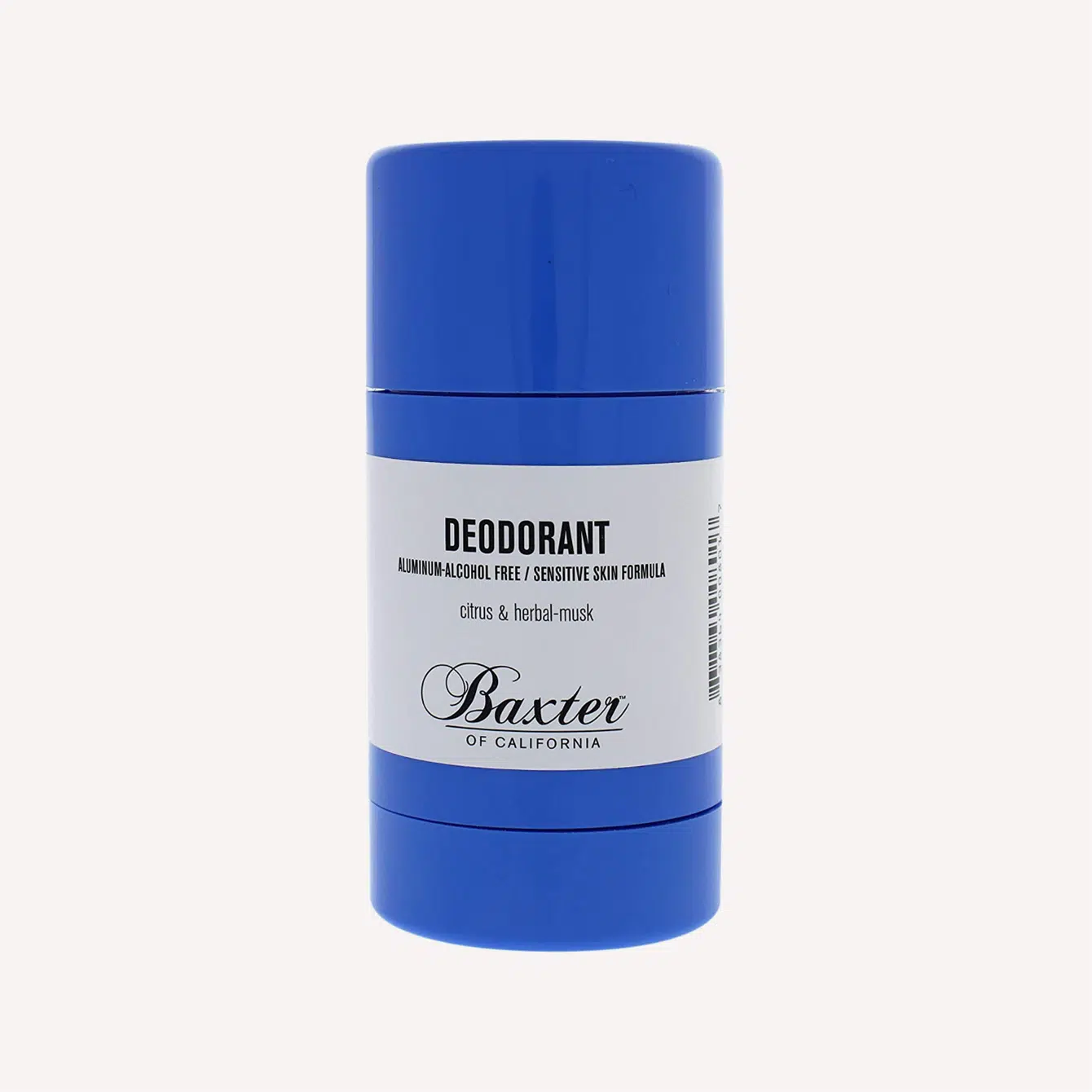
Similarly, the formula keeps things simple — there’s no aluminum, parabens, or baking soda to be found here. Instead, the formula uses ingredients like tea tree oil, witch hazel, and chamomile.
Baxter’s Deodorant is a gel, which you don’t often see in the world of natural deodorants. This deodorant is a great choice if you’ve been using gels for years and want to make the switch to a natural formula.
Bravo Sierra
Bravo Sierra isn’t your typical personal care brand. Active-duty members of the U.S. military field-test their products, so you know they’re going to be effective.
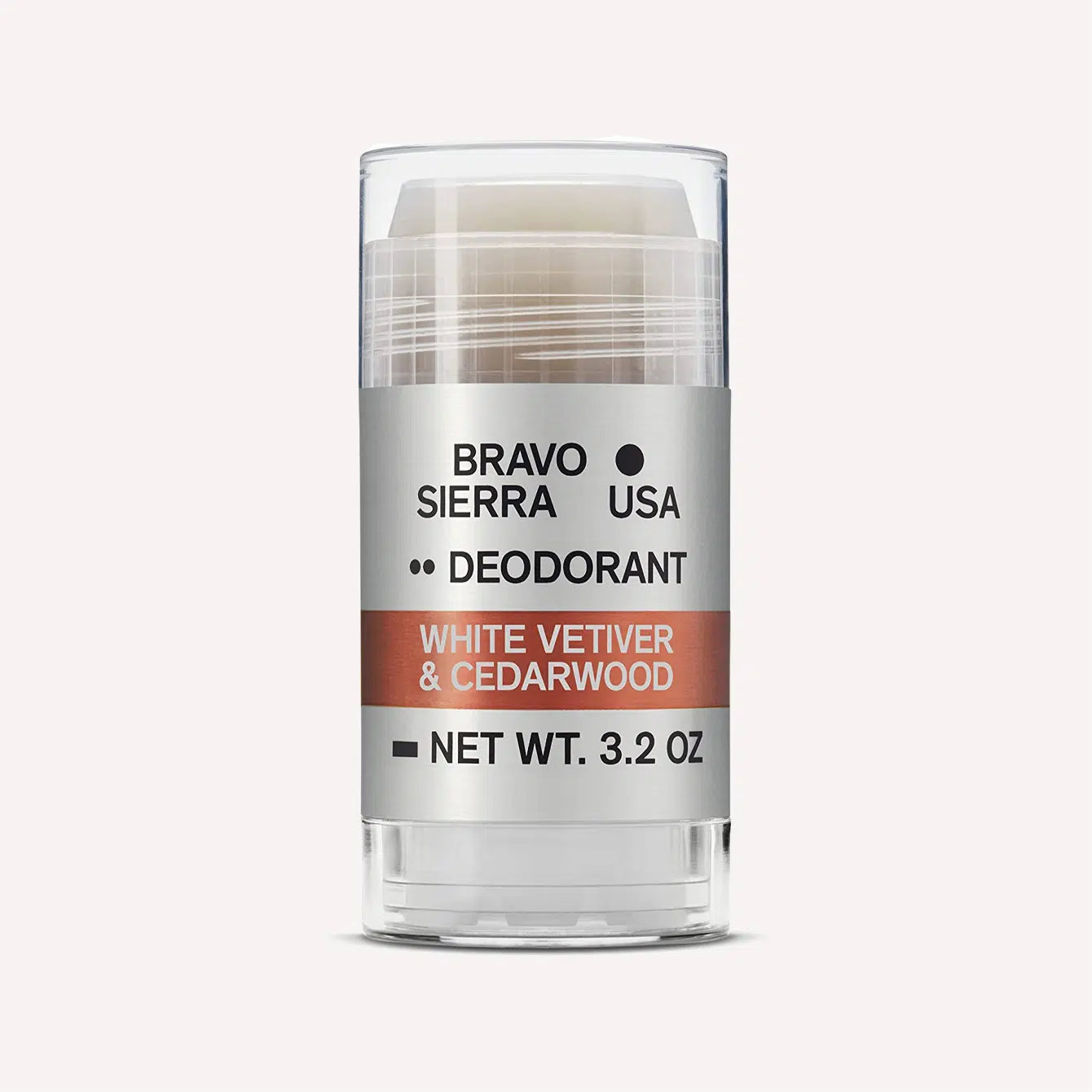
Their high-strength deodorant is no exception; it promises all-day odor and sweat protection with zero staining.
What’s especially impressive is that Bravo Sierra managed to create such a powerful deodorant using only natural ingredients. Their formulas contain no aluminum, baking soda, parabens, silicones, or phthalates.
They offer a nice range of scents, too. Their most popular is White Vetiver & Cedarwood, a fresh mix of woody aromas that’s pleasantly light. The full-bodied Tonka Bean & Lemon might do it for you if you want something different.
Malin + Goetz
Malin + Goetz’s Eucalyptus Deodorant has been the brand’s best-selling product for over a decade. Simply put, it’s a simple natural deodorant that does the job well, which is why it’s stood the test of time.
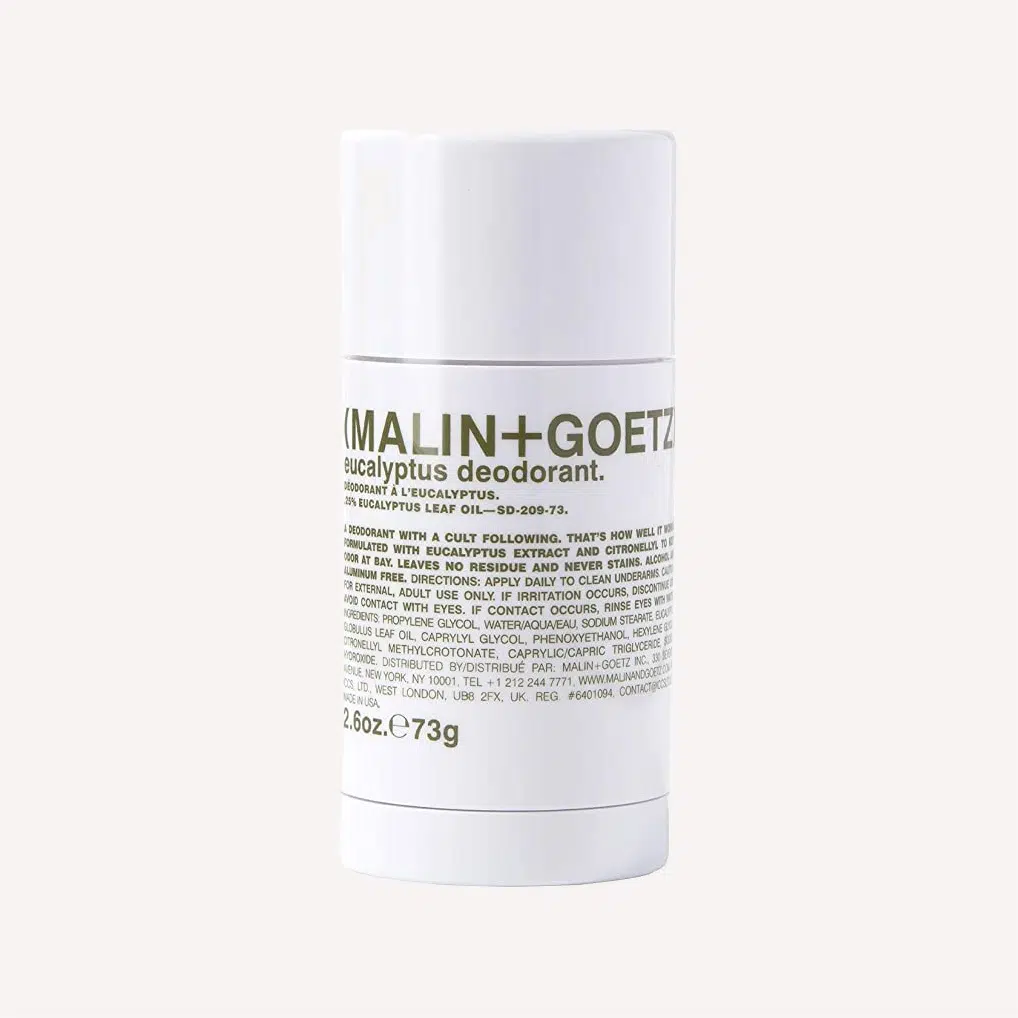
Like all Malin + Goetz products, this deodorant was formulated with sensitive skin in mind, which is why it uses gentle ingredients like eucalyptus extract and citronellyl. It’s free of aluminum, baking soda, parabens, and alcohol.
Scent-wise, the eucalyptus is delicate and herbal, so, it won’t overpower your nostrils. But if eucalyptus isn’t your thing, then you might like the bergamot or botanical scents.
Anthony
This award-winning deodorant from NYC-based brand Anthony ticks all the boxes that a natural deodorant should.
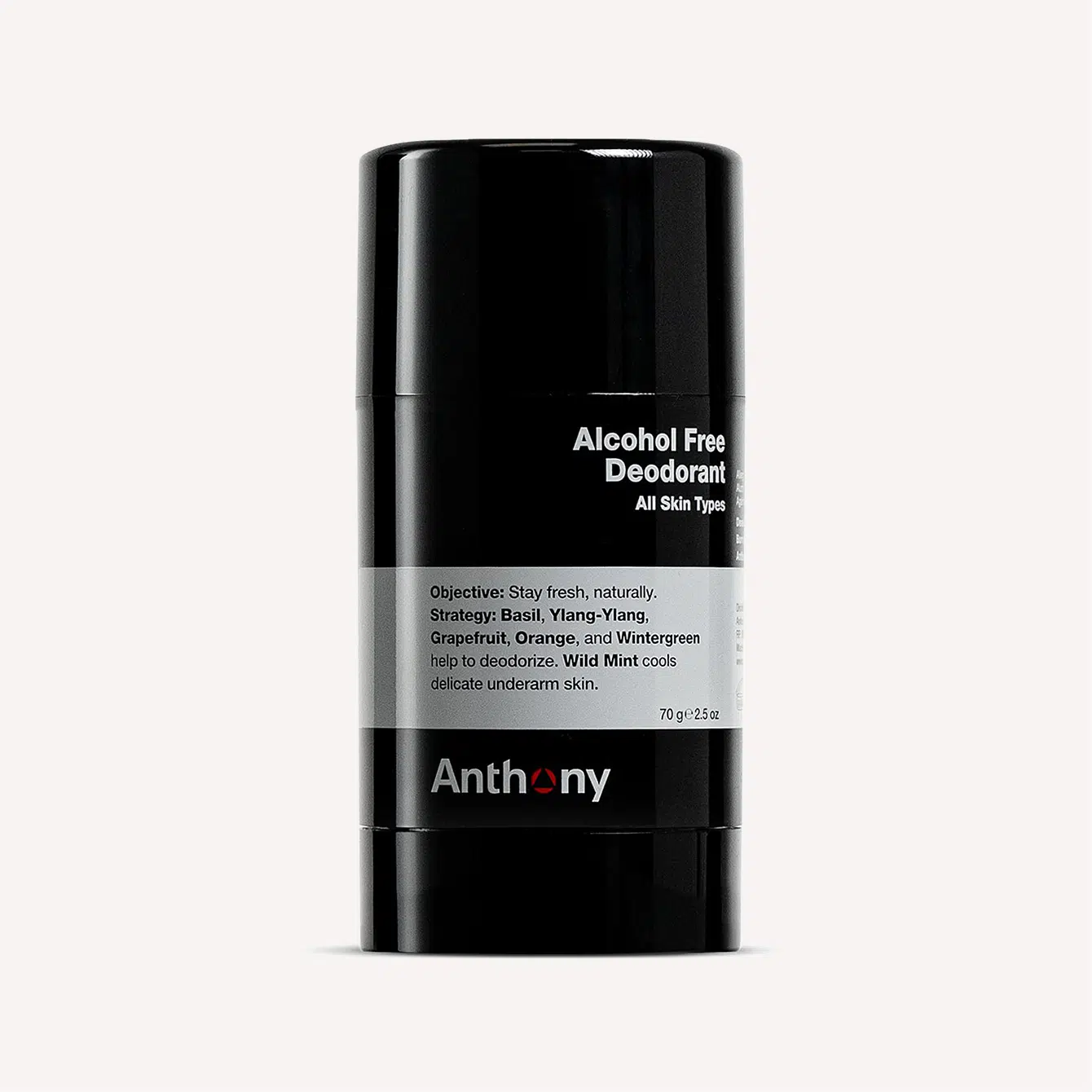
Free of aluminum, alcohol, and parabens, this deodorant fights odor using natural extracts like basil, ylang-ylang, and grapefruit. It also uses wild mint to cool the skin and prevent irritation.
The light, citrusy scent is effective but subtle. With that in mind, this might not be the best choice if you sweat a lot or are extremely active.
Bevel
Bevel’s natural deodorant is uniquely formulated to penetrate coarse and curly hair, so if your pits put up a fight, this is an option to check out.
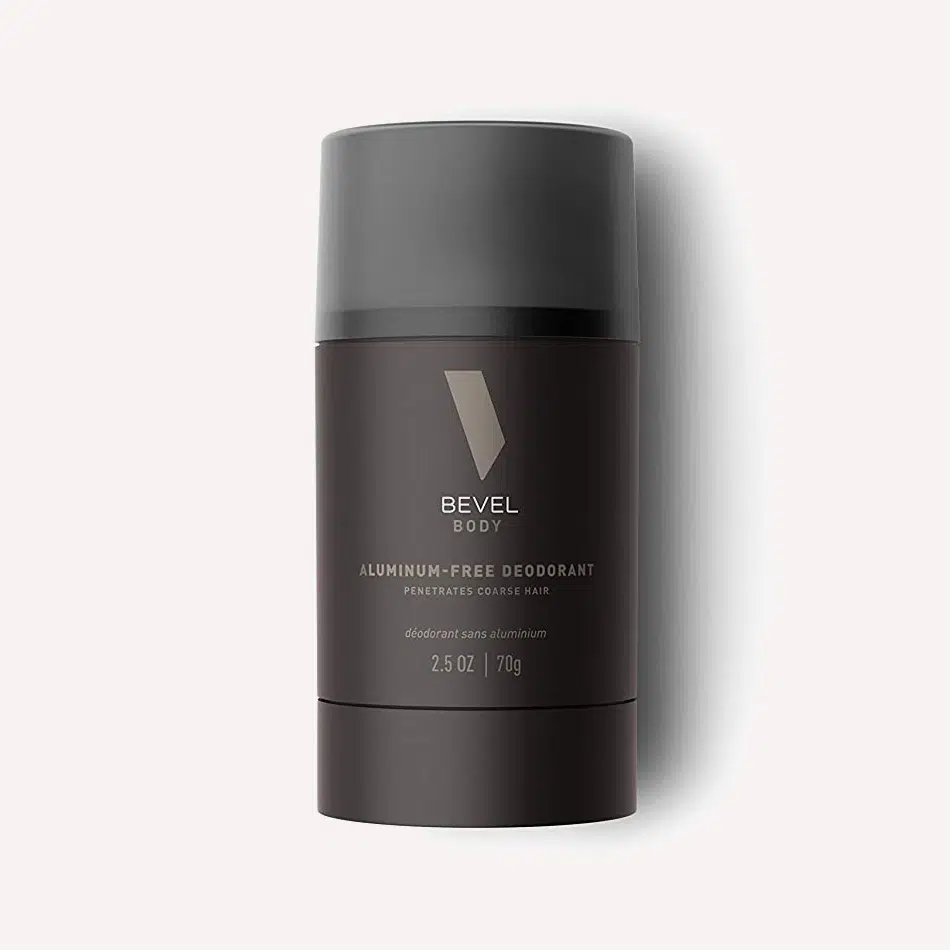
The formula avoids aluminum and parabens but does contain baking soda, so it may not work for some guys with sensitive skin. The key ingredients here are coconut oil and shea butter, both of which have moisturizing properties.
Bevel provides an appealing choice for men who have tougher pit hair that regular deodorant just can’t handle. That said, it does a solid job of handling all types of pits.
Botanik
Botanik’s Fresh Evergreen natural deodorant has one of the most impressive ingredient lists I’ve seen. There are just nine ingredients (four of which are essential oils), and everything is immediately recognizable.
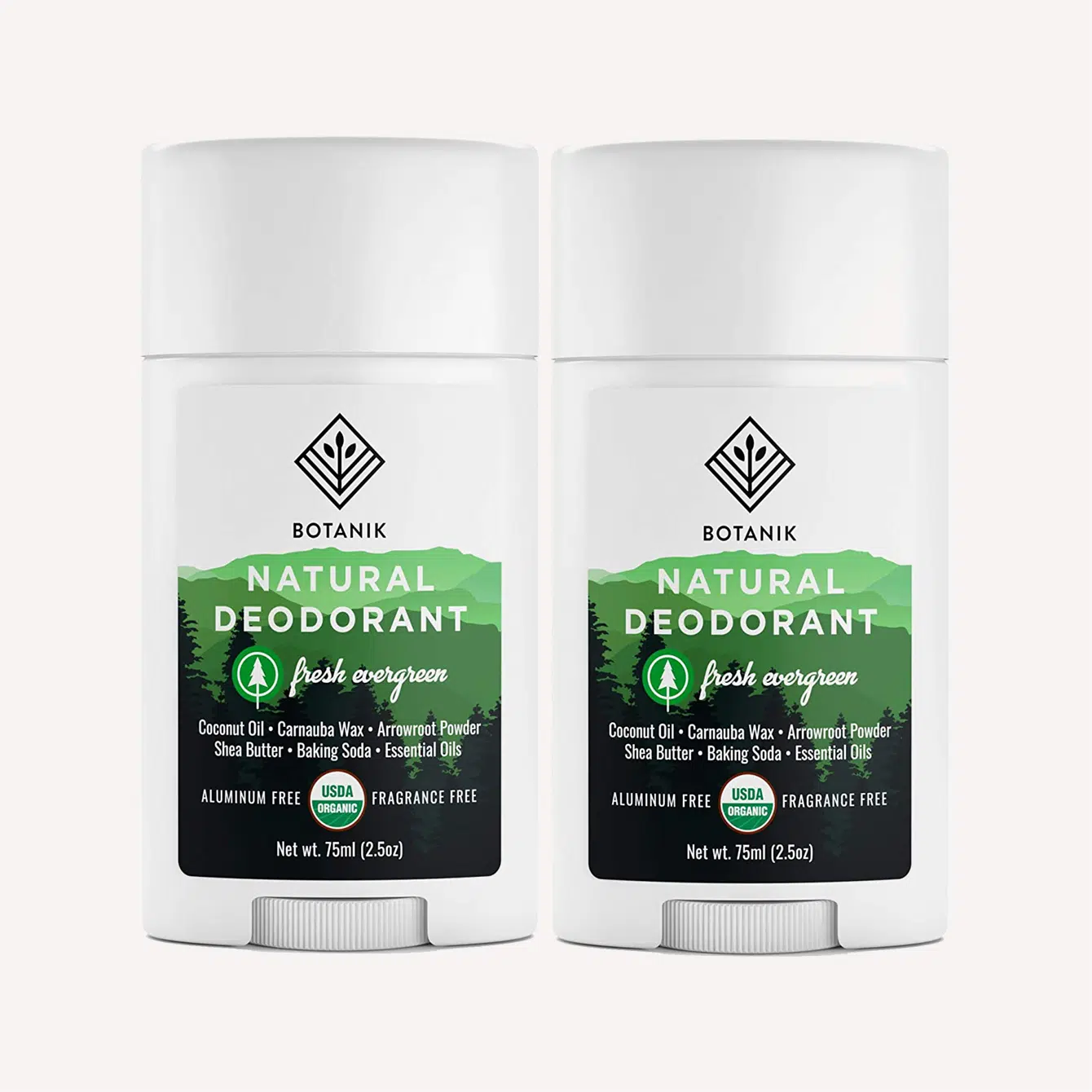
Even though this deodorant is so simple, it packs a punch. Arrowroot powder absorbs wetness while the essential oils battle odor, so this deodorant should get the job done even if you’re a heavy sweater.
The fresh evergreen scent features rich notes of Douglas fir and Scotch pine as well as sage and eucalyptus lemon. If you’re not sensitive to baking soda, then Botanik is absolutely worth a look.
FAQs About Natural Deodorants
Here are the answers to some commonly asked questions about natural deodorants for men.
What Is the Most Effective All-Natural Deodorant?
No one natural deodorant can be considered the “best.” The effectiveness of a deodorant depends on how it responds to your body. All of the options on this list are effective and long-lasting, so most of them should work well for the average person.
Is There a Natural Deodorant That Actually Works?
Most natural deodorants do work! The majority of natural deodorants on the market today are formulated to combat odor more effectively, but again, it depends on how your body reacts to certain ingredients.
Why Do My Armpits Smell With Natural Deodorant?
If you’re transitioning from an antiperspirant to a natural deodorant, you may not see results right away. To speed things up, you can detox your pits.
What Deodorant Do Doctors Recommend?
Native, Schmidt’s, and Tom’s of Maine have all been recommended by dermatologists. You might see the term “clinical strength deodorant,” but don’t be fooled — products with that label are almost always antiperspirants, not deodorants. Clinical strength deodorants don’t really exist.
Which Deodorant Is Right For You?
It can take some trial and error to figure out which natural deodorant is right for you. Don’t give up if you don’t see results immediately — try out a deodorant for at least a couple weeks before you make up your mind.
Hopefully this guide has helped you understand what natural deodorants actually are and why you might want to use them.
Questions? Comments? Leave them below!
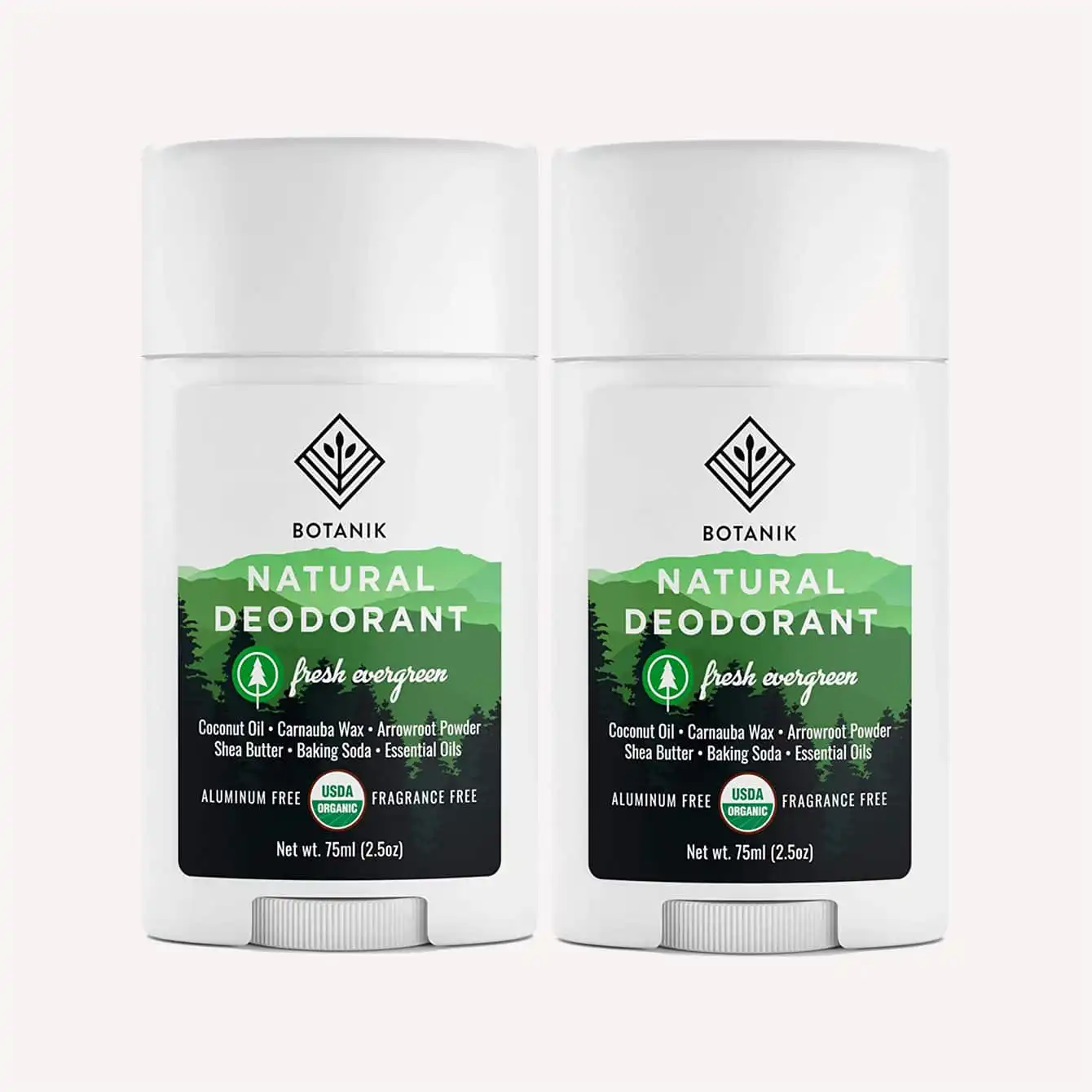
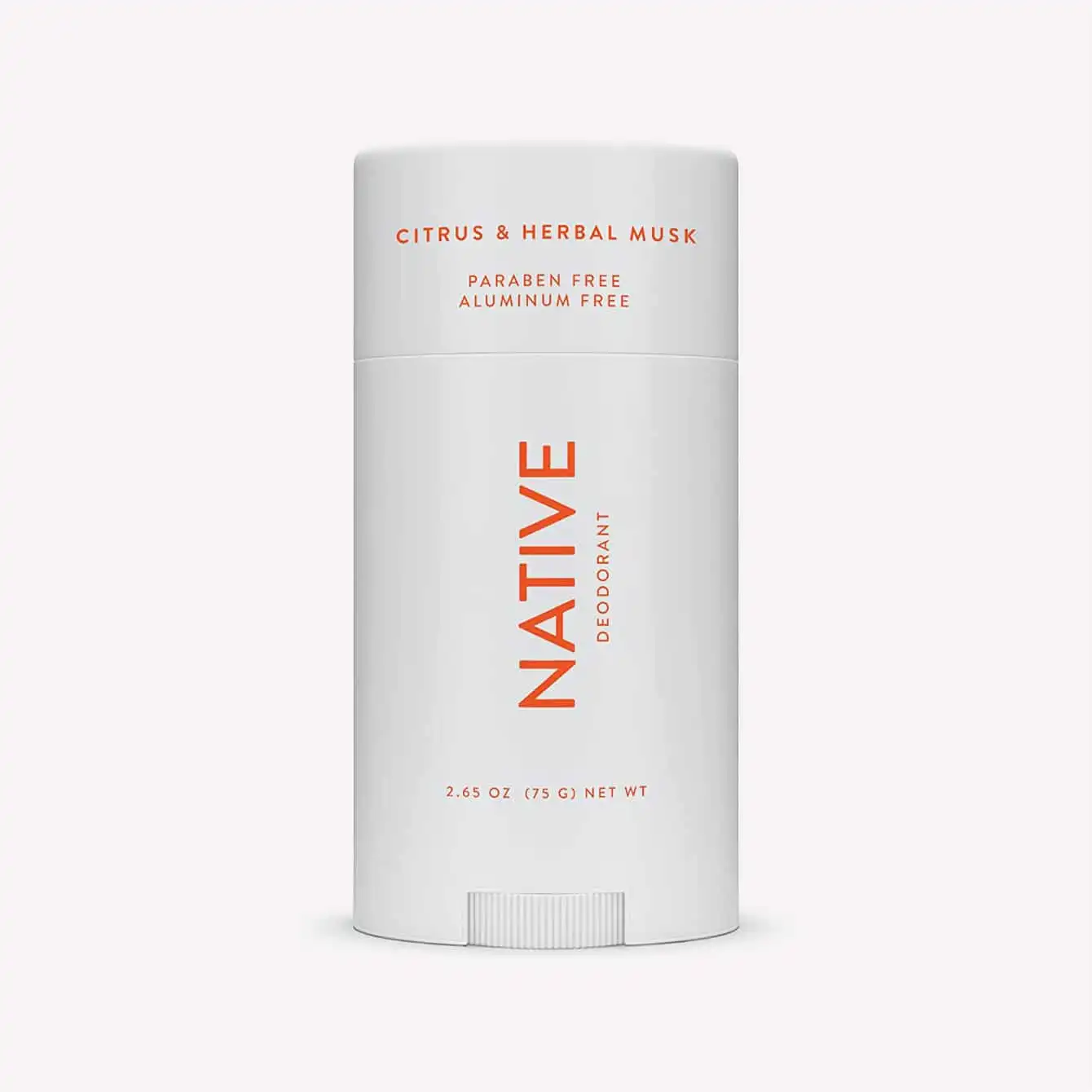
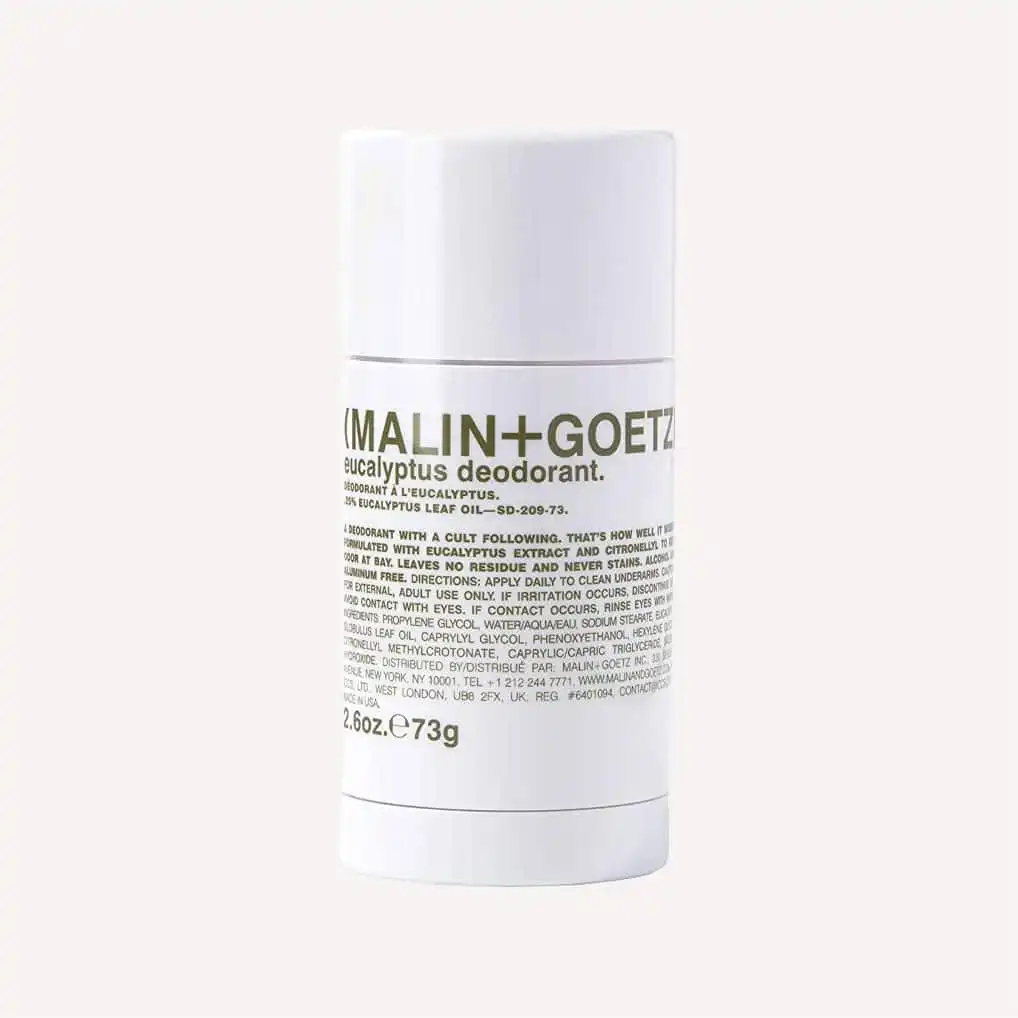
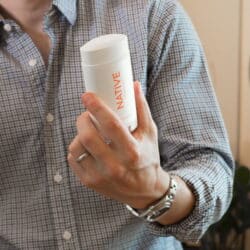
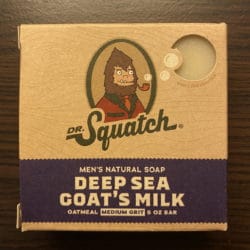

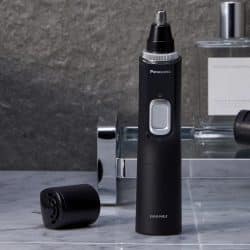


Ask Me Anything